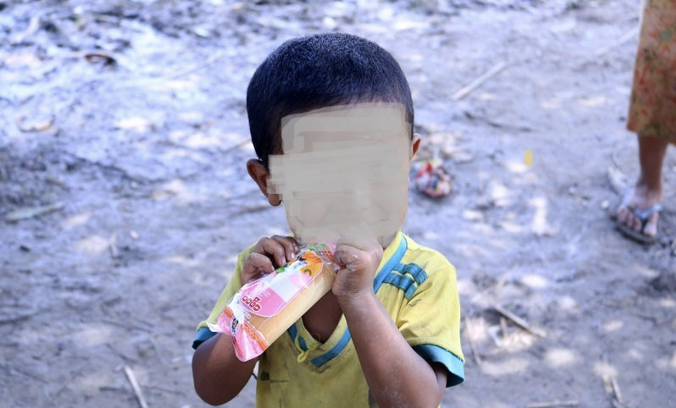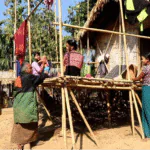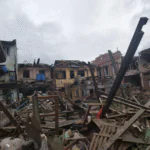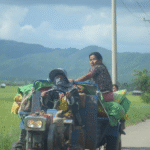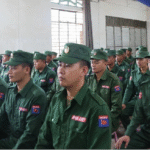Many locals have been displaced in Arakan State where fighting is intense. Due to low employment opportunities, the people are struggling to make ends meet. Children are becoming malnourished, according to locals.
According to social organizations and businesspersons, trade and the economy are currently experiencing a significant decline, accompanied by an increase in poverty rates.
“I have rice, but I cannot afford meat or fish. Buying other types of food is also challenging for me. The family next door has to eat rice with congee. It is not easy for us to afford other snacks,” said a woman from Pauktaw Township.
Locals in Pauktaw Township, who mainly rely on waterways for transportation, are suffering more from the financial crisis, and children there are becoming malnourished.
“My children are skinny and their faces are pale. They are malnourished. They cannot afford the food they want. I can’t withdraw money remitted by my husband from overseas. There are no job opportunities here,” said a displaced woman who moved from Sittwe to Pauktaw Township.
Commodity prices are skyrocketing due to road and water route blockades by the military council. People are experiencing severe livelihood challenges, even in areas where money withdrawal and remittance services are accessible.
As a result of these crises, children can no longer eat meat and fish, nor can they afford supplementary food, leading to increasing cases of malnutrition.
Poverty in Myanmar is more widespread than at any time in the last six years, according to the World Bank’s report released on 12 June.
More than 3 million people have been displaced by fighting as armed resistance forces and the ethnic armed groups fight back against the military council. The poverty rate has soared to 32.1 percent, according to the World Bank’s statement.
Sent by Aung Htein (DMG)

